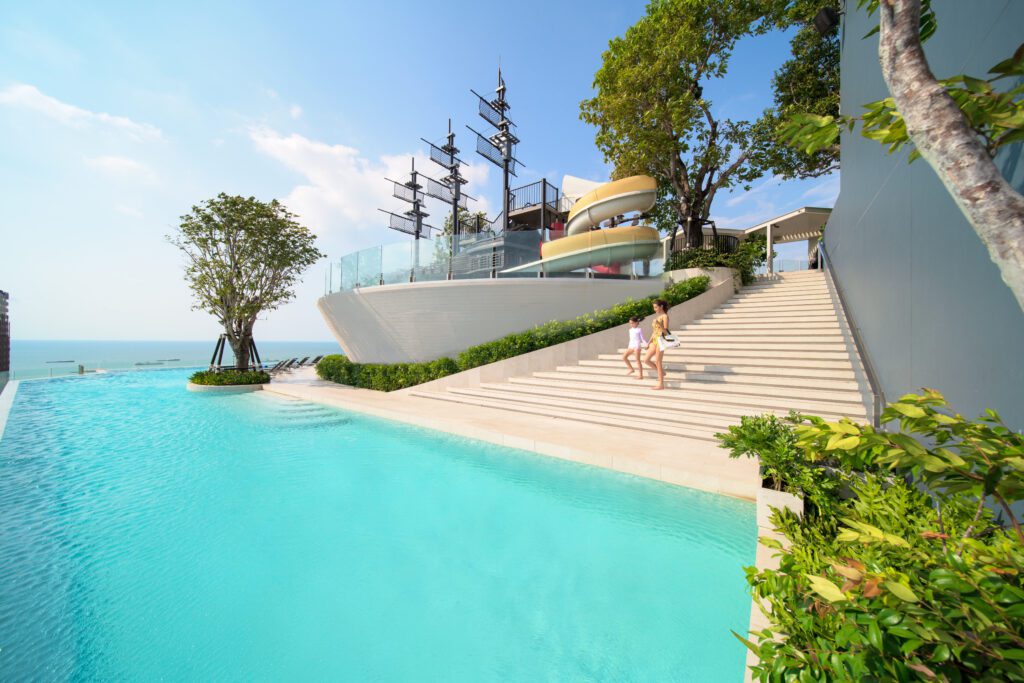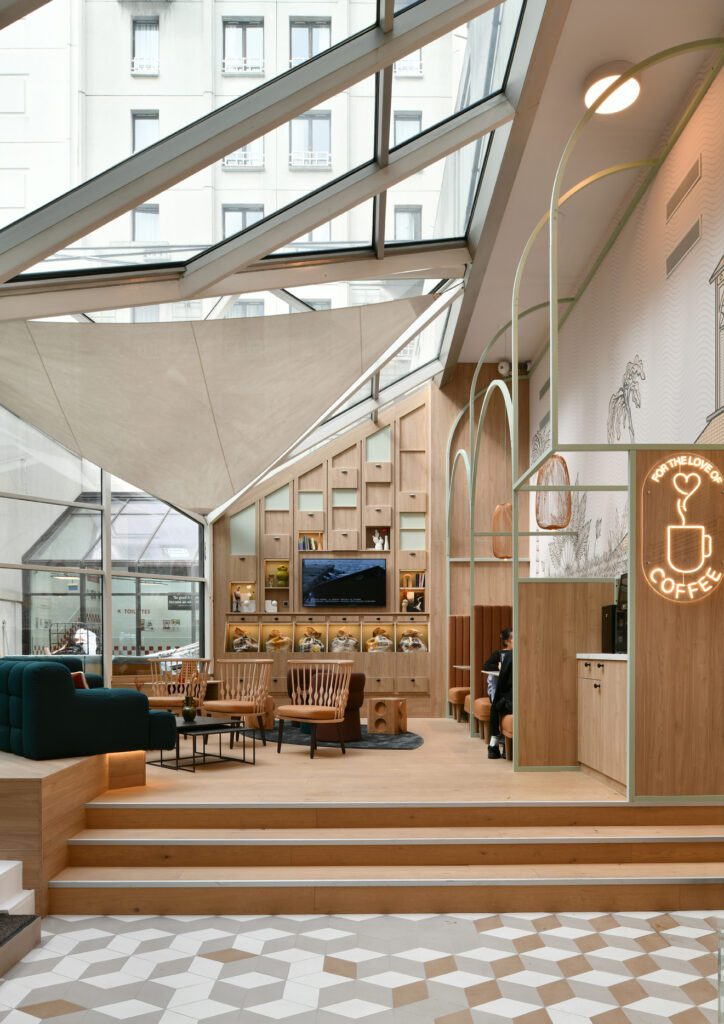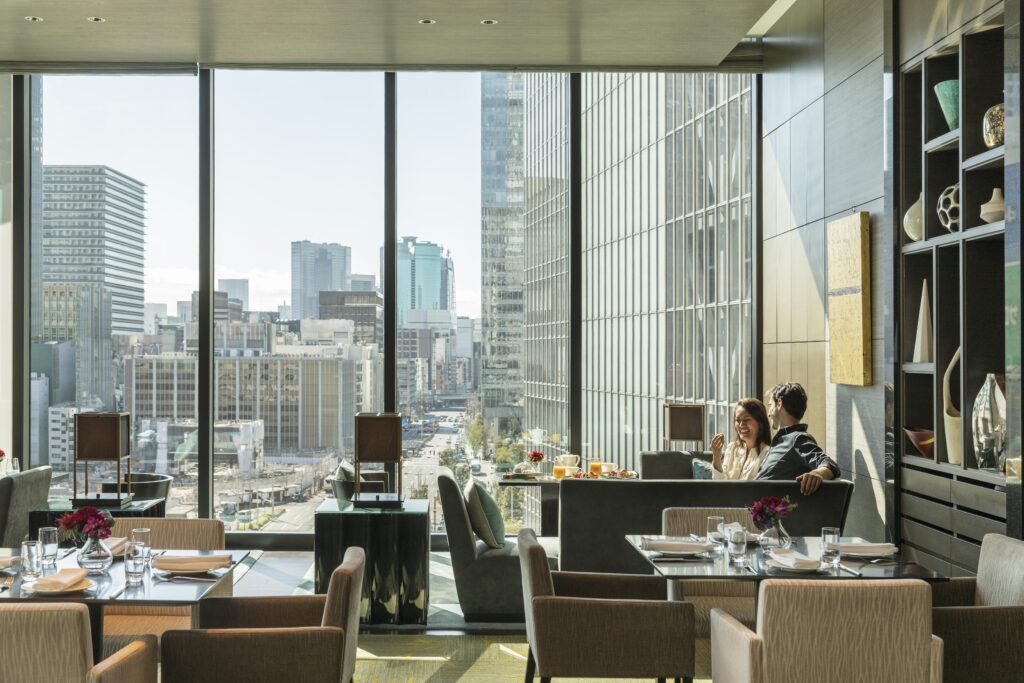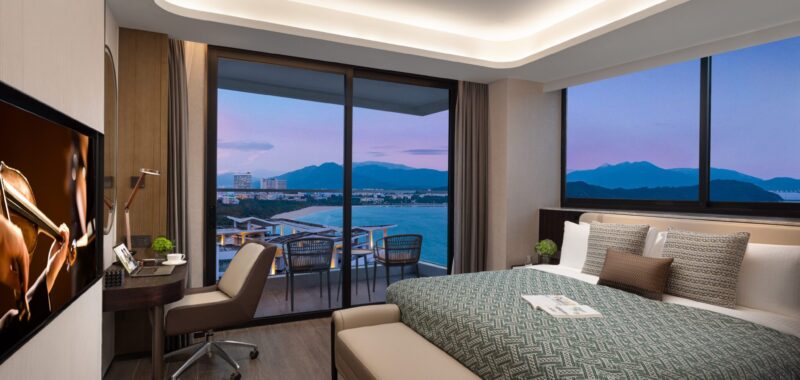This sponsored content was created in collaboration with a Skift partner.
The shift to remote work has fundamentally altered the balance between work and personal life, transforming what was once known as “bleisure” into a central strategy for major travel companies. According to Skift Researchâs Global Travel Outlook 2024, blended travel bookings increased 72 percent year-over-year in 2023 compared to 2022.
Additionally, digital nomadism is rising, creating continued demand for extended stays and a surge of multigenerational family travel, with travelers increasingly combining business trips with vacations.
These shifts are creating new opportunities for hospitality brands. Properties that allow for flexible customization can capture multiple segments in the future. For example, The Ascott Limited (Ascott), an emerging global hospitality company from Singapore and the lodging business arm of CapitaLand Investment, is catering to the spike in demand for longer-term accommodations while still capitalizing on the ongoing need for short-term stays through its flex-hybrid hotel-in-residence model.
Pioneering Versatile Lodging Solutions
Celebrating its 40th year in 2024, Ascott began as an extended-stay serviced residences provider. Since then, it has evolved into a full-fledged global hospitality company with more than 950 properties across diverse brands in Asia Pacific, Central Asia, Europe, the Middle East, Africa, and the U.S.
Responding to the call for flexible hospitality solutions, Ascott has implemented a flex-hybrid model across its expansive global portfolio. The idea is to meet the needs of relocated professionals, long-term guests, and the growing demand for transient and blended travel with its versatile lodging options, such as serviced residences, co-living properties, and hotels.
An example of Ascottâs adaptive model is the resort-style Ascott Dadonghai Bay Sanya, which merges luxury accommodations with long-stay facilities to attract both vacationers and remote-working professionals. Similarly, Somerset Pattaya offers a resort-style experience that blends leisure amenities with spacious serviced apartments.

âOperating on a flex-hybrid model enables Ascott to remain agile and responsive amidst fluctuating business cycles and quickly adapt to changes in demand. As an operator, this model improves efficiency by optimizing asset utilization, diversifying revenue streams, and anticipating guest needs. For guests, it translates to more choices and customization. For owners, it offers greater potential for higher revenue and occupancy rates,â said Kevin Goh, CEO of Ascott and Lodging, CapitaLand Investment.
This flex-hybrid modelâs benefits are visible in an impact study on key revenue metrics that showed significant revenue growth across regions, according to a white paper by IDeaS, which provides revenue management solutions to some of Ascottâs properties.


Flexibility, Experience, and Rising Demand in an Evolving Market
According to Skift reporting, thereâs a growing emphasis on experiential travel. People are spending more money on experiences over possessions and increasingly looking to deepen their understanding of the history and culture of their destinations.
âOur collection brands respond to this demand while offering Ascottâs flex-hybrid hotel-in-residence experience. For example, The Unlimited Collection connects guests with the destinationâs culture, people, and environment, fulfilling their desire for authentic and engaging stays. Conversely, The Crest Collection delivers a unique blend of luxury and heritage, showcasing the distinct stories and traditions of each property and its location,â said Tan Bee Leng, chief commercial officer of Ascott.
âWe also see opportunities to tap into experiential travel, such as sports tourism, which has emerged as one of the fastest-growing segments. Our recent appointment as the Official Global Hotels Partner of Chelsea Football Club has opened up new ways for us to deliver impactful and memorable hospitality experiences as we grow our brand presence,â she added.


Another example of Ascott aiming to innovate is its lyf brand, which is geared towards a new generation of travelers. Centered around an experience-led social living concept, lyf caters specifically to digital nomads, technopreneurs, creatives, and self-starters. Itâs designed as a community hub where people connect and share ideas.
On the other hand, Ascott’s Oakwood brand emphasizes comfort and well-being, providing a home-like environment that extends beyond traditional accommodations. This brand appeals to those who prefer the comforts of home while traveling, whether on extended stays or brief visits.
âAscott has been focused on strengthening our portfolio of 14 brands to better serve both our guests and property owners. We have the opportunity to curate hospitality experiences that provide exceptional rewards and attractions for members of our Ascott Star Rewards loyalty program into the future,â Tan said.
Strategic Growth and Brand Evolution
Ascott’s strategic growth through acquiring hotel brands and operating platforms has further redefined its identity toward full-service lodging and strengthened its market position across regions. Notable acquisitions have included Oakwood Worldwide in 2022, TAUZIA Hotel Management in 2018, Quest Apartment Hotels, Synergy Global Housing in 2017, and the Citadines brand in 2004.
Among the most expansive acquisitions was Oakwood Worldwide, adding thousands of units and additional locations to the portfolio. This proved a strong showcase for Ascottâs capabilities to leverage growth opportunities while broadening its reach and integrating new property types into its ecosystem.
Such expansion milestones have helped support immediate growth objectives while strengthening Ascottâs market position. As Ascott grows, its shift towards hospitality management and diversified lodging solutions in various asset classes has enabled it to respond to the market proactively through organic growth driven by property conversions, management agreement and franchise management.
As it strengthens its brands and expands globally, Ascott is improving its ability to capture growing demand and position itself competitively in the hospitality space.
âWeâre working towards increasing our fee revenue to over $387 million (S$500 million) by 2028. Diversification will be crucial to our strategy as we expand our portfolio to encompass various property types and market segments in different geographies to meet a wider spectrum of guest preferences and drive sustainable growth. We aim to solidify our leadership in the flex-hybrid hotel-in-residence sector and deliver exceptional value to our stakeholders,â Goh said.
Learn more about The Ascott Limited.
This content was created collaboratively by The Ascott Limited and Skiftâs branded content studio, SkiftX.

